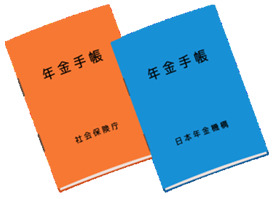By Koh Fujimoto
Support cross-border life

I will explain three indispensable pension knowledge of Japan and the United States that I would like you to know when obtaining U.S. citizenship from permanent residency status. In the U.S., not knowing certain critical information can quickly put you in a very disadvantageous position.
1, Social Security
Social Security, a U.S. pension system, allows U.S. nationals to receive their benefits, even if they stay outside the United States. The same is true for all of your social security benefits, such as an old-age pension, the bereaved family pension, and the family pension.
Next, for permanent residents, Japan is one of the 21 countries where the United States has a social security agreement. If you are a Japanese citizen, you can receive social security benefits even outside the United States.
Since it is a bilateral treaty, if you are a Japanese citizen, you can receive it as long as you are eligible for social security. In other words, even if you give up your U.S. permanent residency after returning to Japan, there is no change in your eligibility.
If you go to the social security office, there seems to be an officer in charge who says that if you leave the U.S., you will not be able to receive it, and if you lose permanent residence, you will not be able to receive it, but this is not true. Don’t worry.
2, Use of “Kara” (empty) period- Japan Pension
The period of eligibility for receiving a Japanese pension is currently ten years. You can add to this calculation the period you have been abroad between age 20 and 60. The name of this period is called the “Kara” (empty) period. This Kara period is the period during which you are a Japanese citizen and lived abroad. Therefore, at the same time as obtaining U.S. citizenship, you will no longer have the right to use this Kara period.
To put it a little more simply, for example, if you have been working in Japan for five years, the pension enrollment period is five years. After that, if you go to the United States and have been a housewife for five years, the latter five years will be called the Kara period, and five years + five years will be ten years, and this person will be eligible for Japanese pension benefits for this. However, if this person obtains U.S. citizenship upon her arrival to the U.S., it will not be a Kara period because he is not a Japanese citizen. Therefore, there is a difference here depending on the nationality.
Of course, the Japan-U.S. Social Security Agreement currently allows the U.S.-Japan pension enrollment period to be totaled. If this person has a record of working in the U.S.by paying social security taxes, it is unnecessary to use the Kara period.
3, Voluntary enrollment of the National Pension
The Japan National Pension is compulsory if you live in Japan, but you will be a voluntary member if you go abroad. In other words, you can continue to subscribe at your own will. In this case, you must submit a transfer notification and pull out the resident’s card when you leave the country.
Japan’s National pension seems to be an excellent system that the state pays half the cost of, and I recommend that you continue even if you are in the United States.
However, this particular benefit is only available to Japanese citizens, so you will not join this voluntary subscription. In other words, when you acquire U.S. citizenship, you lose the right to voluntary enrollment in the National Pension abroad. You understand the point where the difference in nationality appears in the difference in the pension.
4, Finally
In Japan, if one of the spouses got enrolled in the Japanese pension system if that person dies, the other spouse may receive a pension for the bereaved family in the Japanese pension system. Regardless of your nationalities, you have the same right to survivor benefits under Japan’s pension system. In other words, it doesn’t matter what nationality you are in to get a Japanese bereaved family pension.
Choosing American citizenship is one of life’s most important choices. Consider the above points and make your own convincing decisions.
CDH provides tax filing services for individuals living in the U.S. and strives to resolve and explain their various problems and questions every day. In addition, these people’s issues are complex and wide-ranging, including U.S. and Japanese tax laws, immigration laws, life insurance, and retirement rules. I intend to make this article as easy as possible to understand the points of complex tax laws and regulations. So there are many exceptions. If you take action, be sure to consult with a tax and legal professional.
I produce videos on the same topic on YouTube. Would you please search at CDH Accounting Office in Japanese on YouTube? We also offer free consultations. Would you please make a reservation from this link? If you have any questions by e-mail, we will meet you and answer them. Don’t hesitate to get in touch with Koh Fujimoto at [email protected]
https://outlook.office365.com/owa/calendar/[email protected]/bookings/
If you would like to subscribe to CDH’s newsletter, please visit https://www.cdhcpa.com/login/
